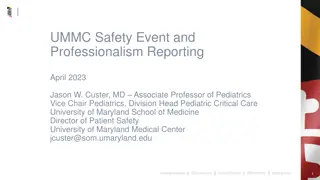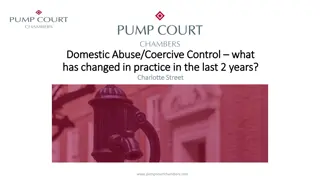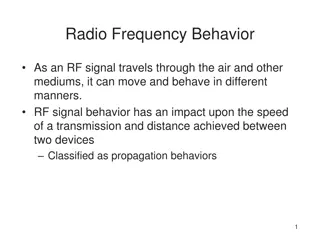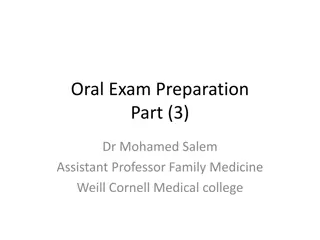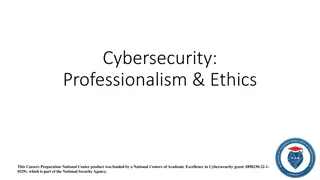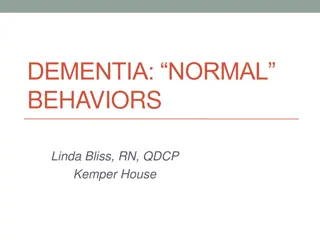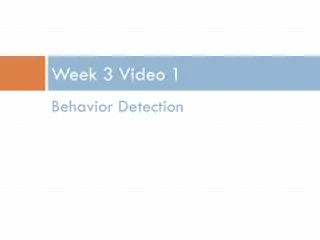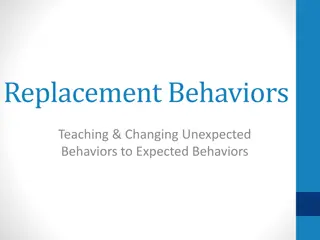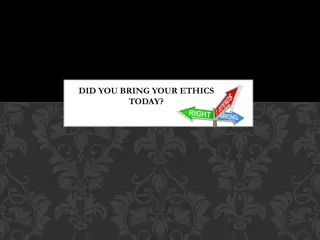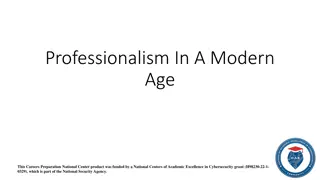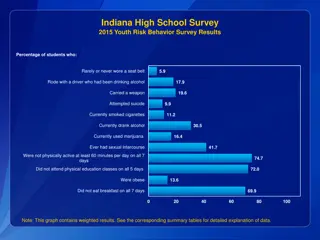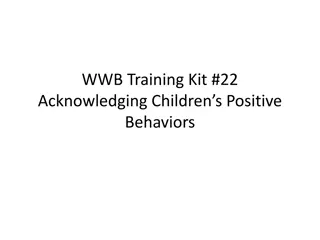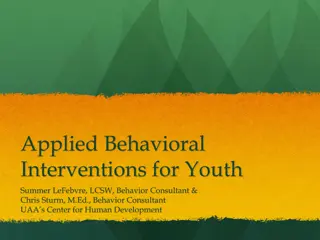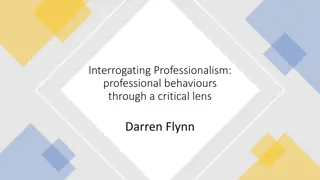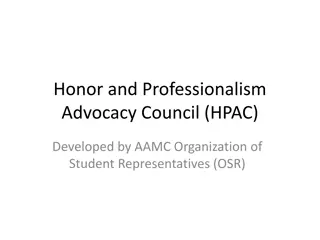Defining Professionalism: Principles and Behaviors
The essence of professionalism through defining principles and behaviors in today's professional landscape. Delve into the responsibilities, ethics, and values that shape a true professional.
Uploaded on Mar 17, 2025 | 2 Views
Download Presentation

Please find below an Image/Link to download the presentation.
The content on the website is provided AS IS for your information and personal use only. It may not be sold, licensed, or shared on other websites without obtaining consent from the author.If you encounter any issues during the download, it is possible that the publisher has removed the file from their server.
You are allowed to download the files provided on this website for personal or commercial use, subject to the condition that they are used lawfully. All files are the property of their respective owners.
The content on the website is provided AS IS for your information and personal use only. It may not be sold, licensed, or shared on other websites without obtaining consent from the author.
E N D
Presentation Transcript
Are You a Professional or Just an Engineer? By Kenneth E. Arnold, PE, NAE WorleyParsons December, 2014
Outline Defining a Professional Principles of Professional Behavior Recovery from Unprofessional Behavior Risks and Rewards of Being a Professional Conclusions
What is a Professional Is a professional defined by: Level of education Job title Salary grade Complexity of job description Degree of supervision required Society perception Or is it something else?
Definition of Professional There is no objective definition of a professional job or assignment. There is only a definition of professional behavior . Anyone who acts in a professional manner is by definition a professional Professional behavior requires: Always looking out for the best interest of your project, client and society Never making decisions based solely on your best interest, the best interest of your employer or personal convenience So let s discuss the Five Principles of Professional Behavior
Outline Defining a Professional Principles of Professional Behavior Recovery from Unprofessional Behavior Risks and Rewards of Being a Professional Conclusions
1stPrinciple: Spend the Clients Money As If It Were Your Own Definition of client Supervisor The Project Itself Employer Customer The public You must think about what you are doing in the context of the best interest of the client Am I spending my time and thus the client s money wisely You can t just perform a task; you must understand how the task fits the client s needs Drag reducer example
2ndPrinciple: You Owe the Client One Strong Argument Professionals are hired for their brains You are not allowed to say: I knew there was a better way but they wanted it done this way I knew they would not listen This is standard practice, even though it does not make sense in this context That is not my job Make your case carefully and politely
3rdPrinciple: Shut Up and Do What the Client Wants Why might a client disagree with you You could be wrong Client may have different data Client may be comfortable with a specific approach Ego Remember Best interest of the client Handle disagreements with care The following trump all Technical reality Safety Station controls example
Exception: Technically It will Not Work Make sure you are right Understand you erred the first time in not explaining it correctly Get help formulating your explanation Carefully bring it up inn a non-threatening way Never blame the client for not understanding Clients always agree once the technology is understood.
Exception: Safety Issues Make sure it is really a safety issue and not merely a preference Get help analyzing the issue Never question the client s motive Relief valve example Meet with the client with others from your group present Do not document the disagreement, yet Listen to the client; he may have a different insight which is valid Only document the disagreement if it is unbridgeable Stand by your decision and accept the consequences Manifold example
4thPrinciple: Correct Errors A professional makes mistakes Insufficient data Misleading or incorrect data New data/ revisions Miscommunication between team members Think about potential effects of new information on the project as a whole Correct your errors as soon as practical Verify that others realize the impact on their work Figure out how to avoid the same error in the future If you do not know at the end of the job how you could have done it better, you are not a professional Dehydrator slab example
5thPrinciple: You Must Act Ethically Towards Others Everyone deserves the right to be treated with dignity Customer, Vendor, Boss, Subordinate, Peer Everyone deserves the right to be treated equally and fairly. It is unethical to: Requesting favors and giving advantages to favorites Using your position to force others to do things not in their interest Do unto others as you would have them do unto you
Outline Defining a Professional Principles of Professional Behavior Recovery from Unprofessional Behavior Risks and Rewards of Being a Professional Conclusions
What If You Act In An Unprofessional Manner? We all do unwittingly from time to time We act before thinking We are distracted We don t have all the facts We are human Bosses or clients may require us to do things we think may be unethical Follow the rules for the Safety Exemption Apologize Not paying for extra work example
Outline Defining a Professional Principles of Professional Behavior Recovery from Unprofessional Behavior Risks and Rewards of Being a Professional Conclusions
So What Is the Payout for You? Job satisfaction Knowing you are doing good Gaining respect for your work Getting more interesting and challenging opportunities Better relations with co-workers More enjoyable work environment Better reputation in industry Ability to make a difference
What Are the Downsides? You have to think about what you are doing and how it fits into the client s goals You have to force yourself to speak up and not accept authority s answer as necessarily correct You have to educate yourself and ask questions so you can speak up You may be wrong and have to admit it You have to think about your behaviors and how they are perceived by others You have to be prepared to suffer the negative consequences
Outline Defining a Professional Principles of Professional Behavior Recovery from Unprofessional Behavior Risks and Rewards of Being a Professional Conclusions
So Are You Going to be a Professional or Just Another Engineer? It is up to you. I don t have the answer. There are many who are not comfortable being a professional There are many who don t want to expend the effort to be a professional Only you know what you are capable of doing and what you wish to accomplish in your working life
Questions? Contact Information; karnold@karnoldconsulting.com ken.arnold@worleyparsons.com Cell: 832-212-0160


